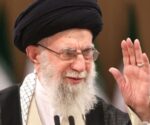Will Iranian dissidents heed Netanyahu’s call and rise up? | World | News
Israeli Prime Minister Benjamin Netanyahu has made a bold appeal to the Iranian people, urging them to overthrow their government as Israel continues an unprecedented military operation against the Islamic Republic. Speaking in light of escalating tensions, Netanyahu declared that ongoing Israeli operations “could certainly” pave the way for regime change, as reported by Newsweek.
His remarks have coincided with calls from a range of Iranian opposition groups — both within the country and abroad — for a mass uprising against the regime. These factions span a wide political and ideological spectrum, including secular dissidents, ethnic militias, Islamist groups, and royalists. However, despite their shared opposition to Iran’s leadership, they remain fractured and have historically failed to gather the momentum necessary to pose a serious threat to the Islamic Republic.
Many of these groups are officially designated as terrorist organisations by Tehran, which has spent the past 46 years suppressing their activities since the 1979 revolution brought the Islamic Republic into power.
One organiser inside Iran told The Times they had chosen to take the risk because they believed the country stood “very close to opening a new regional war, which will cost Iran and all Iranians … Enough is enough. If you don’t take risks, you can’t expect rewards.”
As the situation unfolds, comparisons are being drawn with the student-led revolution that helped Ayatollah Khomeini topple the Shah in 1979. Now, across Israel, the US, and the wider region, the spotlight is turning to Iran’s dissidents — and whether they are in any position to shake the foundations of the clerical establishment led by Supreme Leader Ayatollah Ali Khamenei.
Israeli officials have been quick to underline that their conflict is with Iran’s ruling regime — not its people — and have echoed Netanyahu’s call for citizens to rise against their government.
Still, while enthusiasm is reportedly building among opponents of the Islamic Republic, analysts and former officials are treating claims of an imminent insurrection with scepticism.
Giora Eiland, a retired major general in the Israel Defense Forces and former head of Israel’s National Security Council, told Newsweek that Israel is likely receiving some form of assistance from within Iran — though he conceded that the extent of this cooperation remains unclear.
“We can assume that there are three levels of Iranians that, directly or indirectly, might help us,” Eiland said. “First, when we located some of the Israeli groups that were inside Iran and launched drones from short distances against Iranian facilities, they might have been given some assistance from locals, I cannot verify it, but this makes sense.”
“Secondly,” he added, “Israel is probably encouraging some groups in Iran, and I cannot exclude even an approach to some of the military forces in Iran, not the Revolutionary Guard, but some of the conventional military or regular Iranian army, that maybe the time is now for them to do something. It might be done in a very, very tacit way, but I cannot exclude it.”
“And number three,” he said, “in a way, Israel, even formally is calling the Iranian to try to rise against the government.”
Yet even if the current government were to collapse, major questions remain over what — or who — could take its place.
Two of the most prominent opposition figures are Reza Pahlavi, son of Iran’s last Shah, and Maryam Rajavi, leader of the People’s Mujahedin Organization of Iran (MeK) and its associated political wing, the National Council of Resistance of Iran (NCRI).
Pahlavi, who lives in Washington, D.C., has voiced support for the Israeli campaign, dubbed “Operation Rising Lion”, and echoed Netanyahu’s call for Iranians to stand up to the regime.
While both he and the MeK claim to support a secular, democratic Iran, they remain bitter rivals. The MeK — a leftist rebel group founded in 1965 — has a long and controversial history, having once fought against the monarchy under Pahlavi’s father, despite initially supporting the Islamic Revolution.
There has yet to be any sign of an organised revolt, but discontent appears to be rising inside Iran. A recent letter signed by several dissidents — including two Nobel laureates — urged the government to accept a ceasefire and cease uranium enrichment, echoing long-standing demands from both the US and Israel.
Former minister Mostafa Tajzadeh, a well-known critic of the regime who was later jailed for backing anti-government protests, has also spoken out.
In a letter from prison quoted by The Times, he condemned the Israeli attacks, stating they lacked “political and moral justification.”
Yet he also addressed the need for change within Iran, writing: “I believe that for a peaceful transition to democracy, there must be an insistence on a constituent assembly to change the constitution, and compel the government to establish it.”









